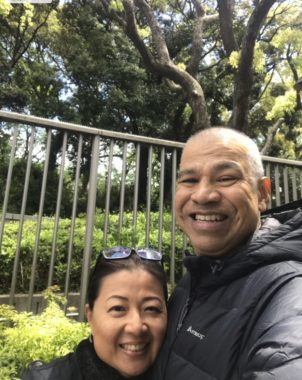A Little Understanding Can Go a Long Way for Rare Disease Sufferers

When you live with a rare illness, it can affect every facet of life.
I am a carer to my husband, Aubrey, who has hereditary ATTR amyloidosis. Since his diagnosis in 2013, the disease has become more evident with each passing moment, not only in the physical sense for Aubrey, but also in our interactions as husband and wife, his relationship with our children, and our rapport with friends.
Most exchanges and affiliations have been shaped by his condition. There are no traditional or normal ways to work around things. We adapt constantly to the changes.
We are at a disadvantage when it comes to social trips with friends. We can no longer do many out-of-town excursions, which we used to enjoy doing with a group. It is a challenge to conform to the group’s plans. We often choose to book flights, accommodations, and trip agendas on our own.
It is not easy to facilitate travel plans for a large number of people and ensure that everything flows smoothly. Working around or catering to the needs of individuals with health challenges can make the process even more stressful. It requires a great deal of empathy and understanding.
So, Aubrey and I make our own travel plans, but join up with friends at their destinations. Social activities are very important for mental wellness, so rather than place a full stop on plans, we just find workarounds.
My husband’s amyloidosis has transformed him from a strong, able-bodied man who was actively involved in sports to a person who struggles with symptoms such as severe fatigue, diarrhea, lightheadedness, declining sensation in his hands and feet, and slow reactions, to name a few.
Though he faces these issues daily, he still strives to live as normal a life as he can. However, there is no denying that normalcy is difficult to attain for a person with a debilitating rare disease.
Regular aspects of life often require us to process, react, act, and evaluate within a certain time frame so that we can evolve, grow, and prosper. When you have a crippling illness like hATTR amyloidosis, these abilities are stunted. If growth and evolution are vehicles on life’s highway, amyloidosis is that colossal truck driving above the speed limit in a road rage, and it rear-ends growth and evolution into a ditch.
Therefore, Aubrey and I count ourselves blessed to have relationships with people who accept and tolerate our inconveniences. They love us despite everything. Although no one can fully comprehend, much less relate to, what a sufferer goes through, a little understanding goes a long way.
Even if people do not grasp our situation, we shouldn’t judge them. We have lost friends over the years, but we cannot criticize them just because they do not understand our predicament. After all, understanding is a two-way street.
“Any fool can criticize, condemn, and complain but it takes character and self-control to be understanding and forgiving.” – Dale Carnegie, “How to Win Friends and Influence People“

At times it is easier to do our own thing as a couple. (Photo by Aubrey Christmas)
***
Note: FAP News Today is strictly a news and information website about the disease. It does not provide medical advice, diagnosis, or treatment. This content is not intended to be a substitute for professional medical advice, diagnosis, or treatment. Always seek the advice of your physician or other qualified health provider with any questions you may have regarding a medical condition. Never disregard professional medical advice or delay in seeking it because of something you have read on this website. The opinions expressed in this column are not those of FAP News Today or its parent company, Bionews, and are intended to spark discussion about issues pertaining to familial amyloid polyneuropathy.







Leave a comment
Fill in the required fields to post. Your email address will not be published.